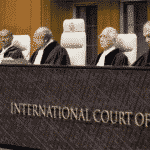|
Getting your Trinity Audio player ready... |
The Supreme Court of Wisconsin declared that the head of the Department of Health Services broke the law with her stay-at-home order. Legislators and jurists across America should immediately follow suit to test the legality and constitutionality of their own state actions.









